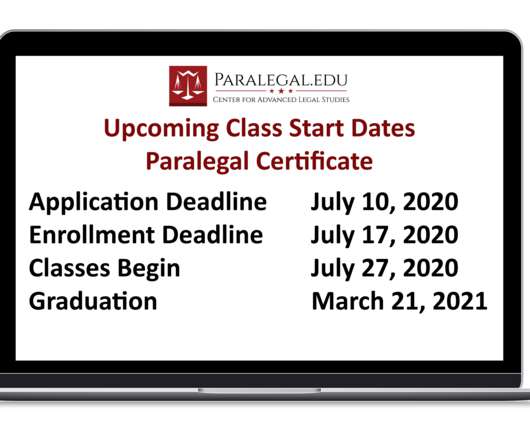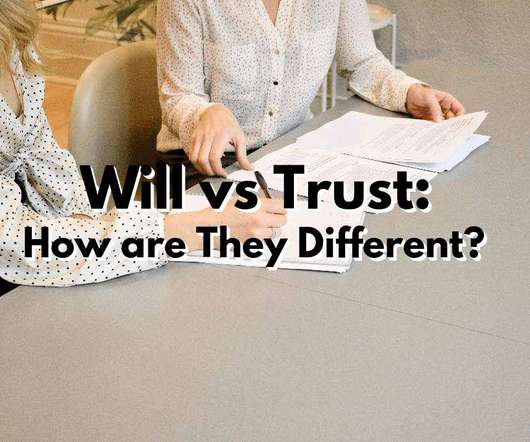In case you missed it - June 2020
Paralegal.edu
JUNE 16, 2020
All of us at Center for Advanced Legal Studies hope you are safe and well during these difficult times. We wanted to provide a reminder of our upcoming paralegal certificate class start dates and application deadlines along with some links to recent articles posted by CALS.
















Let's personalize your content